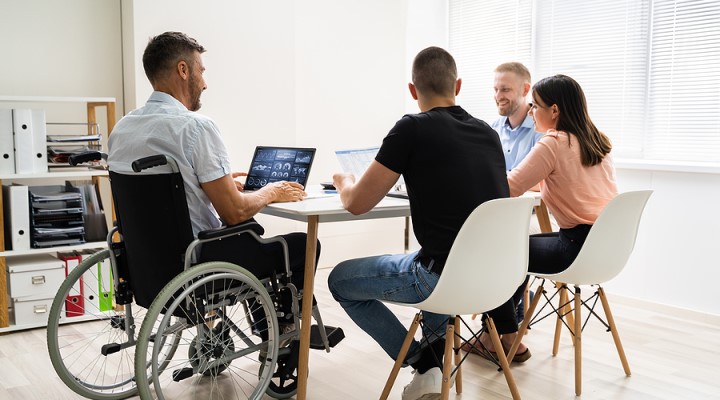With the world struggling to cope with the ongoing uncertainty that the pandemic has brought, diversity and inclusion are more important than ever.
I define diversity and inclusion as having a workplace that reflects the community your organisation is operating in. If you’re looking around and seeing all the same faces, that’s not representative of our society or your customer base. In turn, this will impact your decision making and the talent you can attract.
Unfortunately, the pandemic has had a disproportionate impact on people living with a disability, highlighting the issue of insecure employment for many of them. On a positive note, the shift to work-from-home is a real opportunity for those with physical or musculoskeletal disabilities, particularly in regional areas.
Small businesses are the biggest employers of people with disability, so there is a real opportunity to make a real difference. Plus, there are significant benefits and support available. Working every day on the ground with small businesses such as cafes, retail and small builders, AimBig Employment understands the needs of small businesses and can assist with many HR and compliance functions. And the good news is it doesn’t cost small businesses anything, which is particularly important during these times.
Top tips to improve your company’s diversity and inclusion.
- Understand the difference between equality and equity
I hear the word equality a lot, but not equity. Some employers pride themselves on being equal opportunity employers without understanding that some groups need more support than others. In the diversity and inclusion space, when you look at all of the different cohorts, I believe disability is the one where equity is the most important. For example, your gender, ethnicity, or sexuality generally don’t have any impact on your ability to perform your job. Disability is the only one where you might need extra support, particularly in neurodiverse or mental health cohorts. - Spend less time thinking and more time doing
A big mistake companies make is spending far too much time thinking about diversity and inclusion and less time doing it. Our approach is that it’s not as hard as you think. It’s about hiring humans. You’re already hiring humans with all sorts of different backgrounds and experiences without waiting for specialised programs or strategies. People with a disability make up 20% of the workforce, meaning you’re already supporting workers with a disability, you just don’t know it. - Utilise the support that is available
Businesses also don’t realise the amount of free support that is out there, including organisations like AimBig. There’s a lot of funding from the government to help, such as wage subsidies and workplace modification funds. There are lots of experts to talk to including AimBig and the Australian Network on Disability. People want to help you succeed. - Get to know people as individuals
Sometimes diversity and inclusion initiatives, although well-intentioned, can make people with a disability feel separated from their colleagues. Examples of this would be companies that announce to the entire team that they’ve just hired a person with a specific disability, and everyone needs to do disability awareness training, and suddenly everyone will look at that staff member differently and worry about doing the wrong thing. You need to get to know people as individuals, like you would any other new employee.











